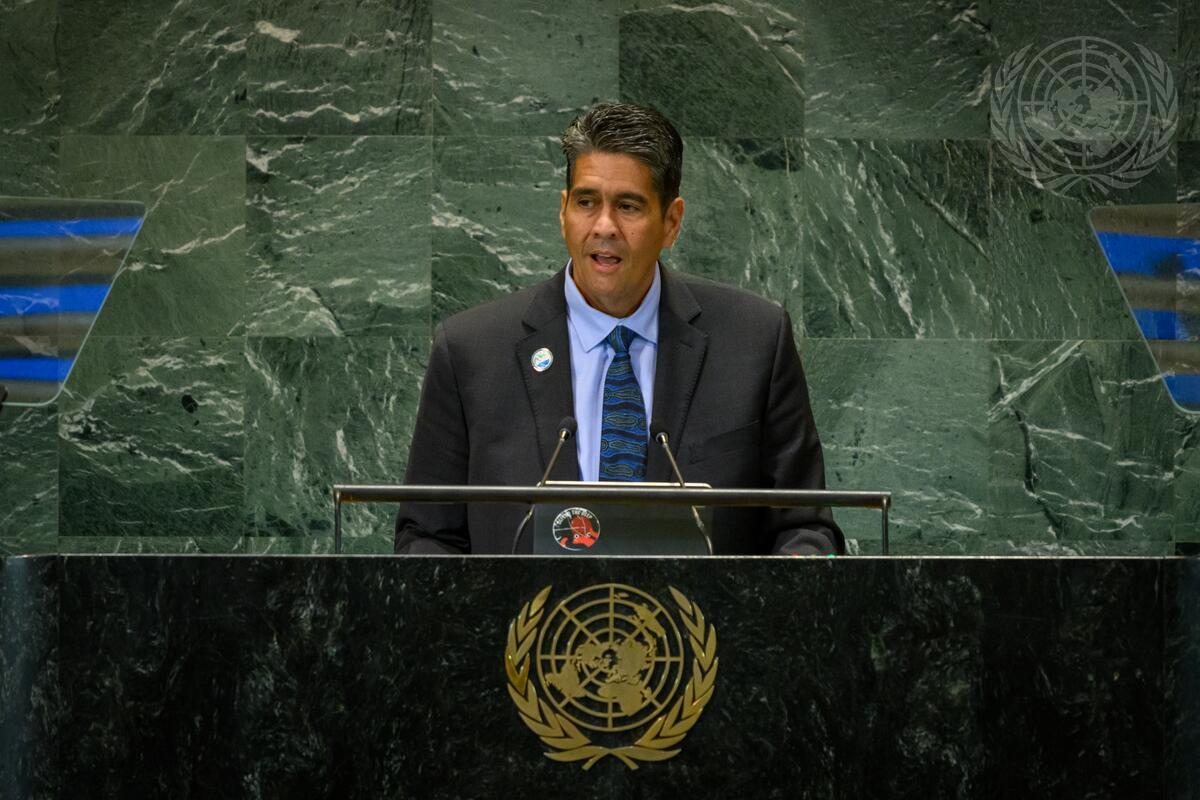At the Summit of the Future, Palau President Surangel Whipps stood as a strong advocate for Small Island Developing States (SIDS) grappling with the dire impacts of climate change.
He highlighted the existential threats faced by small island nations due to rising sea levels, increasing temperatures, and extreme weather events.
The President urged world leaders to take decisive action and collaborate on sustainable solutions to mitigate the impacts of climate change
“We are the least contributors to climate change,” he said, “yet we face its harshest effects. Rising sea levels and extreme weather threaten our hospitals, schools, and food security, putting our children’s future at risk.”
In his speech, President Whipps emphasised Palau’s traditional practice of bul, a sustainable resource management approach that has preserved their environment for generations.
“Our tradition of bul contrasts sharply with the global crisis we now confront, one we had little hand in creating,” he asserted.
He stressed the urgent need for international solidarity and accessible funding.
“We appreciate international funding for climate resilience. However, burdensome requirements make it inaccessible. Financing tailored to special circumstances of SIDS is critical for effective climate action”.
While the UN Sustainable Development Goals paint a hopeful picture, Whipps pointed out a troubling reality.
“The SDGs represent our vision for a world free from poverty and conflict. However, global progress is falling short, with only 15 percent of targets on track and 37 percent regressing.
“This reality is particularly challenging for small islands with limited resources. World leaders need to take decisive action, and corporate leaders need to integrate sustainability into their business practices,” he said.
Despite the challenges, Palau is making strides. The Keled a Ngercheled initiative is set to reduce reliance on imported food.
“Additionally, we are building a national fishing port to support our domestic fisheries, maximise the value of our tuna fisheries, and foster a thriving, sustainable blue economy.
“Building on our Protected Areas Network and the Palau National Marine Sanctuary, we are implementing a multisectoral Marine Spatial Planning approach to achieve 100 percent effective ocean management, prioritising conservation, domestic fishing zones, and tourism sites based on science, data, and traditional knowledge.
“Aligning with the global goal of 30 by 30, we are collaborating with other Pacific Islands and partners to discuss regional ocean protection and production measures. Recognising the power of collective action, the Unlocking Blue Pacific Prosperity was launched at COP 28, which aims to create a regional movement that promotes 100 percent effective ocean management, resilient food systems, and sustainable financing for development. Investments are underway, but we call for even greater investments to ensure its full potential is realised,” he said.
Emphasising the importance of ocean health, Whipps warned against deep seabed mining, underscoring the ocean’s role as a significant carbon sink.
“As a Big Ocean State, we are deeply connected to the ocean. A healthy ocean means a healthy planet. And now more than ever, we must resist the temptation to rush into deep seabed mining, which threatens irreparable harm to our ocean. The technologies heralded as part of the green transition must not turn our largest carbon sink—the ocean—into a casualty of shortsighted greed.
“If we can send people to space, surely we can innovate to meet our energy needs without exploiting the seabed or engaging in other destructive practices,” he said.
Whipps also spoke on Taiwan’s exclusion from the UN, highlighting the irony of this year’s theme, “Leaving no one behind.”
“We acknowledge Taiwan’s valuable contributions to global sustainable development and technical cooperation. The irony of this year’s UN General Assembly theme, “Leaving no one behind,” is starkly evident in Taiwan’s continued exclusion from the United Nations and its specialised agencies due to a misinterpretation of UNGA resolution 2758.
“Taiwan’s leadership in technology, particularly semiconductors, is undeniable. As technology plays a crucial role in our pursuit of a sustainable future, it is essential that Taiwan’s expertise is not overlooked.
He invoked Palau’s guiding principle of ‘teluo chural’— “one tongue,” calling for integrity and collective action.
“In these critical times, we must speak with one voice and act in unison,” he urged, reminding global leaders that the consequences of inaction will resonate far beyond the small island nations.














